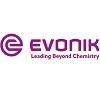
Content sponsored by:
Evonik Animal Nutrition
Bacillus subtilis DSM 32315 alters immunity, nutrient transporters and cecal microbiome of broiler chickens under necrotic enteritis challenge
Published: July 23, 2020
Source : B.B. Musa¹, ², W. Zhang³, X. Yang¹*, J. Gao³ & K. Doranalli4. ¹College of Animal Science and Technology, Northwest A&F University,
Yangling, China ²Shehu Shagari College of Education Sokoto, Sokoto State, Nigeria. ³Evonik Degussa (China) Co. Ltd., Beijing, 100026, China
4Evonik Nutrition & Care GmbH, Hanau, 63457 Germany. E-mail: kiran.doranalli@evonik.com
Poultry production programmes require elimination or reduction of the use of in-feed antibiotics growth promoters (AGP). This has led to an increase in the occurrence of necrotic enteritis, making it an economically significant poultry disease requiring an alternative nutritional interventions. Probiotics offer one alternative to AGP because they can elicit specific actions that promotes the development and maintenance of a stable gut microbiome, leading to a reduction in enteric disease and consequently improved performance. This study examined the effects of Bacillus subtilis DSM32315 (BS DSM32315) probiotic and antibiotic enramycin in broiler chickens challenged with pathogenic strains of C. perfringens on cecal microbial populations, functional diversity, nutrients transporters and mRNA expression of cytokines. Day-old Arbor Acre broiler chickens (n=360) were randomly assigned to three dietary groups; control, basal diet fed-group only; antibiotic, basal diet + enramycin 5mg/kg; and probiotic group, Basal diet + BS DSM32315, 1x106 CFU/g of feed. Antibiotic and probiotic groups were challenged with C. perfringens at d 1 and from d 14 to d 21. Birds supplemented with enramycin and BS DSM32315 significantly (P<0.05) increased the species richness and the abundance of bacteroidetes by 6.8% at 35 days. Absolute qPCR method showed that at 14, 21 and 35 days of age, the bacterial abundance of B. bifidum, Enterobacter, and L. salivarius were significantly higher (P<0.05) in enramycin and BS DSM32315 group, while relative abundance of E. coli was significantly (P<0.05) higher in control group. The expression of anti-inflammatory cytokine of IL-10 and S-IgA were upregulated, while expression of proinflammatory cytokines of IL-6, TNF-α, and IFN-γ were downregulated. In addition, nutrient transporters of PepT1, LAT2 and CAT2 were upregulated in supplemented group and GLUT2, SGLT1, rBAT, carbohydrates and vitamins metabolism cofactor are enriched in BS DSM32315 fed-group. On the other hand, control group exhibited up-regulation in IL-6, TNF-α, and IFN-γ. Thus, it indicated that supplementation of Bacillus subtilis DMS 32315 reduced the effects of enteritis and enhanced the gutmicrobial community and immune parameters in broiler chickens.
Keywords: Antibiotic growth promoter, Bacillus subtilis DSM32315, Clostridium perfringens, gut microbiome, immune response.
Content from the event:
Related topics:
Authors:

Recommend
Comment
Share

Would you like to discuss another topic? Create a new post to engage with experts in the community.



